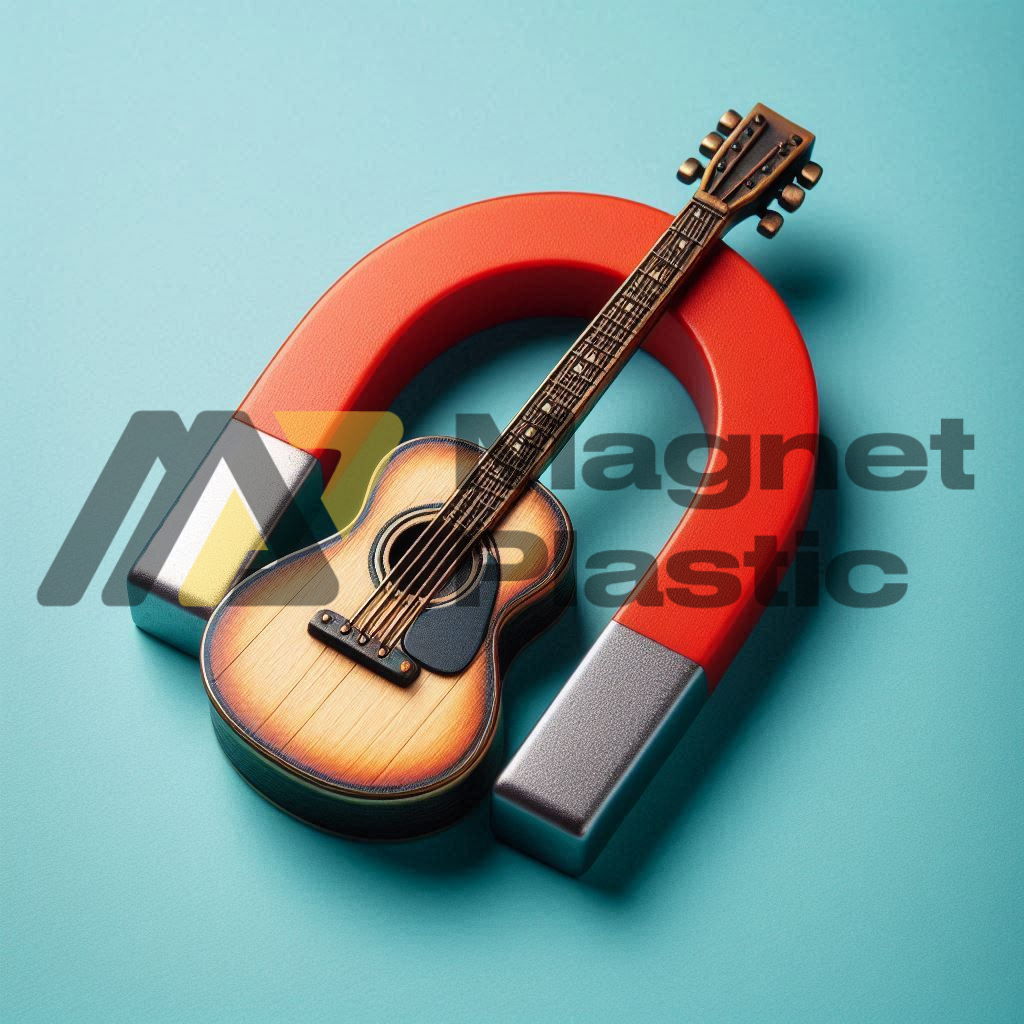Magnets and the Manufacture of Musical Instruments
The evolution of musical art has gone hand in hand with technological advancements that have transformed instrument manufacturing. In this context, magnets have emerged as essential components for enhancing and creating musical instruments, contributing both functionality and sound quality. In this article, we will explore the role of magnets in the manufacture of musical instruments and their influence on the sound and performance of these devices.
Magnets in Electric Guitar Pickups
Magnets play a crucial role in electric guitar pickups, a fundamental component for converting string vibrations into electrical signals. By generating a magnetic field that interacts with the movement of the strings, magnets in pickups allow for a wide range of sounds, from clean tones to distorted ones, depending on the precise combination of magnets and coils.
Applications in Microphones and Speakers
Microphones, which convert sound vibrations into electrical signals, incorporate magnets in their design for precise magnetic response. Neodymium magnets, for example, are common in high-quality microphones due to their strength. Similarly, in speakers, magnets combined with moving coils transform electrical signals into sound waves, influencing the quality and clarity of the emitted sound.
Tonewood Control in String Instruments
In the manufacture of string instruments such as violins and cellos, magnets are used in tonewood control. Some luthiers use magnets to assess the quality and density of the wood, crucial factors that affect the tone and resonance of the final instrument, especially in high-end instruments.
Stability and Tuning in Pianos and Keyboards
Stability and precision in the tuning of pianos and electronic keyboards are achieved through the use of magnets in the calibration and adjustment systems of keys and hammers. This technology ensures consistent response and tone in every note over time, which is vital for concert pianos and recording studios.
Innovations in Magnetic Percussion Instruments
Modern percussion has seen innovations with the use of magnetic instruments. From drums with magnetic systems for quick head changes to electronic percussion that employs magnets in triggers to generate sounds, magnetic technology is transforming the musical experience in this domain.
Conclusion
In conclusion, magnets are essential elements in the manufacture of musical instruments, influencing their sound, stability, and functionality. Their presence highlights the importance of technology in musical creation, providing tools that drive artistic expression and sound quality in contemporary music.
